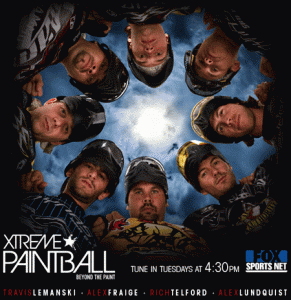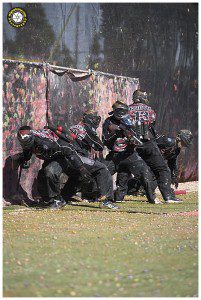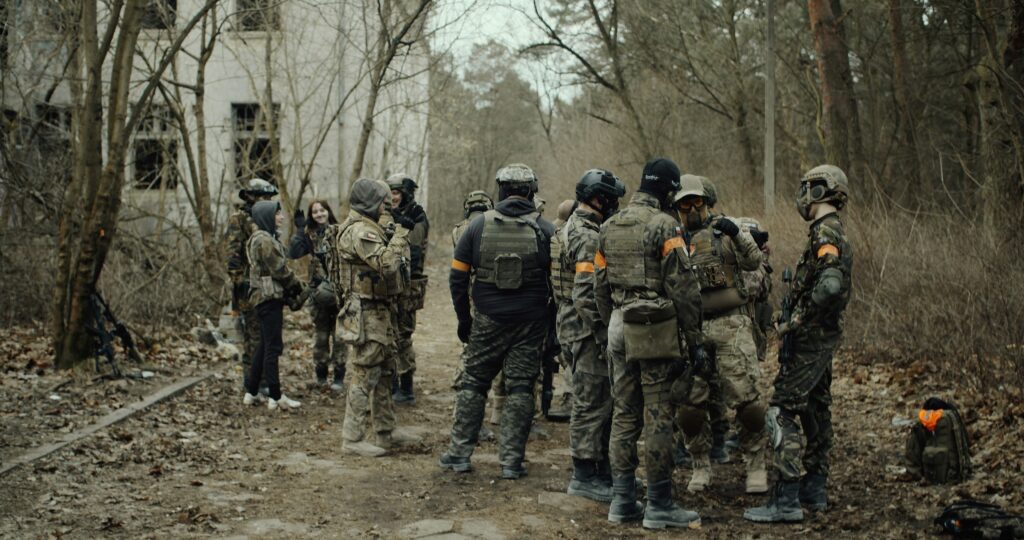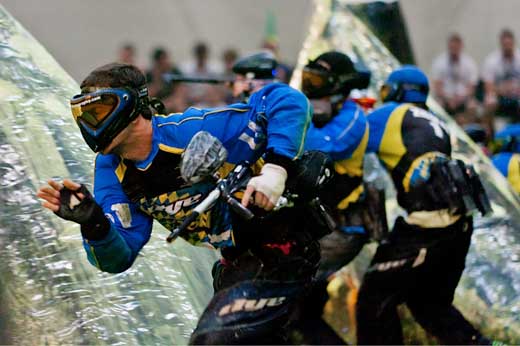Intro to Teamwork

Teamwork is the backbone of success in any collective endeavor, be it in the realm of sports, business, or community projects. Understanding what it takes to be a good teammate is essential for anyone looking to contribute meaningfully to a group’s objectives.
This post aims to shed light on the critical qualities that define a good teammate, explore the characteristics of effective teamwork, and offer guidance on selecting the right individuals for a harmonious and productive team dynamic.
We’ll dive into the hallmarks of a commendable team member, from empathy and support to reliability and communication skills, and discuss why these traits matter.
Further, we’ll examine the adaptability required in shifting scenarios, the importance of a positive attitude, and the collective strength found in shared knowledge and skills. Effective teamwork hinges on clear goals, open communication, and mutual respect—elements we’ll explore in depth.
Additionally, we’ll provide practical strategies for enhancing communication and coordination within teams and insights on assembling a team that balances diverse talents with cohesive chemistry. Join us as we navigate the essentials of building winning teams and fostering an environment where everyone thrives.
The Hallmarks of a Good Teammate
In the fast-paced world of paintball, being a good teammate is about more than just precision shooting. The hallmarks of a commendable paintball player extend into empathy and support, reliability, and communication skills, each playing a vital role in forging a strong, cohesive team.
Empathy and Support: Understanding and supporting your teammates are crucial in paintball. Empathy in the game means recognizing when a teammate is in a tough spot and providing cover fire or strategizing together to overcome obstacles. This support fosters a positive team environment where players feel valued and motivated.
Reliability: Dependability is the backbone of any successful paintball team. A reliable teammate shows up for games and practice sessions on time, follows through on strategies, and is always ready to give their best effort on the field. This consistency builds trust among team members, ensuring everyone can count on each other when it counts the most.
Communication Skills: Clear, concise communication is essential in paintball, where quick decisions can turn the tide of the game. Good teammates communicate effectively, giving and receiving feedback constructively and listening actively.
Whether signaling a change in tactics or alerting to an opponent’s position, successful communication ensures the team moves as a unified front, adapting swiftly to dynamic game situations.
By embodying these qualities, paintball players contribute to a team that’s not just about winning games but also about building camaraderie and enhancing the playing experience for everyone involved.
Also Read: The Best Paintball Gun for You
What Makes a Good Teammate?

In the realm of paintball, a good teammate embodies adaptability, collaboration, sharing, and maintains a positive attitude. These traits are not just beneficial but essential for the fast-paced and often unpredictable nature of paintball games.
Adaptability: The ability to adjust to new situations and challenges is crucial in paintball. Games often don’t go as planned, and a good teammate can swiftly change tactics, navigate unexpected obstacles, or take on different roles as needed. This flexibility ensures the team can respond effectively to the dynamic nature of paintball, turning potential setbacks into strategic advantages.
Collaboration and Sharing: Sharing knowledge and skills is fundamental in strengthening team capabilities. Experienced players passing on tips about marksmanship or stealth, or even discussing game strategies, contributes to a culture of learning and improvement. By pooling their collective wisdom, the team grows stronger, more cohesive, and better prepared for whatever comes their way on the field.
Positive Attitude: Maintaining a positive outlook is infectious and can significantly boost team morale. A good teammate who stays optimistic, even in the face of defeat, can inspire others to keep pushing forward. This positivity fosters resilience, encouraging the team to view losses as learning opportunities and to approach each game with renewed enthusiasm and confidence.
A paintball team that embodies these traits not only enhances its chances of winning but also ensures that every game is an enjoyable and enriching experience for all involved.
Also Read: How to Improve Your Marksmanship
Characteristics of Effective Teamwork

In paintball, as in any team endeavor, effective teamwork is underpinned by clear goals and roles, open and honest communication, and mutual respect. These characteristics are the building blocks for a team that not only performs well but also enjoys the camaraderie and challenge of the game.
Clear Goals and Roles
Having defined objectives is crucial for a paintball team’s success. Each member needs to understand the team’s overall strategy and their specific role in achieving it.
Whether it’s flanking the opponent, holding a position, or making a strategic push, clarity in roles ensures that everyone knows what’s expected of them, leading to a more cohesive and focused effort towards winning the game.
Open and Honest Communication
Transparency is key in the heat of paintball battles. Effective teams communicate openly, sharing information about opponents’ positions, game status, and immediate threats or opportunities.
This honesty builds trust among team members, as everyone feels informed and valued. Moreover, being able to quickly identify and verbalize problems allows the team to address and resolve issues before they escalate, maintaining the team’s momentum.
Mutual Respect
Recognizing and valuing each team member’s unique contributions and differences is fundamental.
In paintball, players come with diverse skills and experiences; some may excel in strategic planning, while others are adept at quick maneuvers or precision shooting.
Respecting these differences and leveraging each player’s strengths contribute to a more versatile and resilient team capable of adapting to various game scenarios.
A team that embodies these characteristics of effective teamwork stands a better chance of overcoming obstacles and achieving victory.
Beyond winning, these traits foster an environment where players support each other’s growth and enjoy the thrill of paintball together, making every match a rewarding experience.
Also Read: Learn about the National Xball League
Strategies for Effective Communication and Coordination
In paintball, where quick decisions and team synchronization are crucial, effective communication and coordination can make the difference between victory and defeat. Here are strategies to ensure your team stays aligned, addresses conflicts constructively, and leverages technology for better coordination:
Regular Check-ins and Updates
Implementing regular briefings before games and debriefings afterward ensures everyone is on the same page. These sessions allow the team to discuss strategies, review performance, and adjust plans based on what worked or didn’t.
During the game, use designated signals or code words to convey information swiftly and keep teammates updated on developments.
Conflict Resolution Techniques
Conflicts are inevitable, but how they’re handled can strengthen or weaken team cohesion. Encourage open dialogue where team members can express concerns without blame.
Practice active listening, where each side seeks to understand the other’s perspective before responding. Finding common ground or a compromise that respects everyone’s views is often more productive than winning an argument.
Collaboration Tools
Utilize technology to enhance team coordination both on and off the field. For strategic planning, tools like group messaging apps or forums can facilitate ongoing communication.
Consider using tactical maps or apps specifically designed for paintball to plan maneuvers or set objectives. For larger teams or those participating in tournaments, project management tools can help organize logistics, schedules, and roles.
By adopting these strategies, paintball teams can foster a culture of effective communication and coordination, ensuring that everyone works together seamlessly towards their common goal.
These practices not only improve performance during games but also enhance the overall team experience, making paintball more enjoyable and rewarding for all involved.
Picking a Team: What to Look For
When assembling a paintball team, the goal is to create a group that’s not just talented, but also harmonious and forward-looking. Here are key factors to consider:
Complementary Skills
Diversity in skills and strengths is crucial. A well-rounded team has players who excel in various aspects of paintball, from strategic thinking and quick decision-making to agility and precision shooting.
The value lies in how these different abilities complement each other, creating a versatile team capable of adapting to any situation on the field.
For instance, a player with a knack for strategy can plan the moves, while fast-moving teammates execute them, and sharpshooters provide cover.
Team Chemistry
Beyond skills, personality fit and shared values play a significant role in building a cohesive team. Team members who get along well are more likely to communicate effectively, trust each other, and work together seamlessly.
Look for players who share a common goal and have a positive attitude towards teamwork and improvement. Teams with strong chemistry enjoy spending time together, both in and out of games, which strengthens their bond and performance.
Growth Potential
It’s also important to consider each potential team member’s willingness and ability to grow. Players who are open to feedback, eager to learn, and dedicated to practicing will not only improve their own skills but also contribute to the team’s overall development.
A mindset geared towards continuous improvement fosters an environment where everyone is encouraged to push their limits and innovate, keeping the team dynamic and competitive.
Assembling a team with complementary skills, strong chemistry, and a focus on growth creates a foundation for not just immediate success, but also long-term development and satisfaction in the sport of paintball.
Such teams are more resilient, adaptable, and likely to enjoy their time together, making every match a rewarding experience.
Nurturing Team Spirit and Cohesion
Nurturing team spirit and cohesion in paintball is about creating an environment where every member feels valued, supported, and motivated to grow. Here are ways to strengthen your team’s unity and performance.
Team-Building Activities
Beyond practice sessions and competitive games, engage in activities that foster camaraderie. Organizing team outings, such as recreational paintball games with unique and fun rules, can encourage bonding in a stress-free setting.
Team dinners or participation in non-paintball related challenges and sports can also help members connect on a personal level, enhancing trust and understanding within the team.
Recognizing and Celebrating Success
It’s crucial to acknowledge both individual accomplishments and team victories. Celebrating successes, no matter the scale, boosts morale and reinforces the value of every team member’s contribution.
Create traditions around these celebrations, such as awarding a player of the day or sharing highlights and key performances post-games. Recognition fosters a positive team culture and encourages everyone to contribute their best.
Continuous Improvement
Cultivate a team environment that values feedback and continuous learning. Regularly review game footage together to identify areas for improvement and celebrate smart plays.
Encourage open, constructive feedback sessions where members can share insights and suggestions without judgment. This approach promotes a growth mindset, where mistakes are seen as opportunities to learn and excel.
Additionally, invite experienced players or coaches for workshops to introduce new techniques and perspectives.
By focusing on team-building, celebrating achievements, and fostering a culture of continuous improvement, paintball teams can develop stronger bonds and a more cohesive unit.
This not only enhances performance on the field but also makes the experience more enjoyable and fulfilling for everyone involved.
Keep Reading: The Best Paintball Sniper Rifles
Concluding our Guide to Building a Solid Team
A good teammate in paintball embodies adaptability, collaboration, positivity, and a strong sense of empathy and support. These qualities, combined with reliability and effective communication, form the bedrock of effective teamwork.
From understanding the diverse but complementary skills within the team to fostering a culture of open communication and mutual respect, the essence of a winning team lies in its ability to work cohesively towards a common goal.
Effective teamwork is further enhanced by regular team-building activities, recognizing achievements, and committing to continuous improvement, all of which strengthen team spirit and cohesion.
As you take these insights back to your paintball team, remember that cultivating these qualities and practices takes time, patience, and conscious effort.
Encourage your team to embrace these principles, engage in activities that build trust and unity, and maintain an environment where feedback and growth are valued.
By doing so, you’ll not only elevate your team’s performance on the field but also enrich the paintball experience for every member, leading to greater success and fulfillment.
Let the journey of building a cohesive, dynamic, and supportive team be as rewarding as the victories you’ll achieve together.
